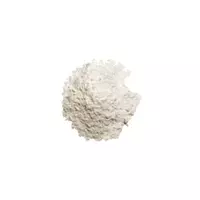Vanillin

Vanillin is a crystalline powder that has a characteristic smell and taste of vanilla. It was created by chemical scientists due to the high cost of natural vanilla and is used in the confectionery and food industries, liquor, perfumes and in the production of medicines. It is worth noting that it does not possess the medicinal properties of natural vanilla, but only repeats its aroma, as it is its artificial substitute. This powder dissolves well in water, ether and alcohol.
Vanillin aroma is considered one of the most popular in the production of various drinks and food products. The properties of vanillin are invaluable for increasing the intensity of other odors, aromatizing products and mitigating undesirable flavors (for example, the taste of fat in poultry or boiling in dairy products).
Depending on the stage of preparation of the dish, the amount of vanillin required is determined. It is very important that there is no overdose, otherwise the final product will taste bitter. With a calorie content of vanillin 288 kcal, the average dosage, for example, per 1 kilogram of dough is no more than 7 grams of powder.
Vanillin has found widespread use in cooking in baking bakery products, in curd cheese and dairy products in general, syrups, chewing gums, creams and chocolate.
This flavor has long been used in the household in the form of vanilla powder or sugar, which is a white mixture of granulated sugar or powdered sugar with vanillin. The content of the latter should be at least
3. 7%.
Benefits of vanillin
A soothing effect on the human body is one of the undoubted users of vanillin. Its smell can eliminate feelings of irritation and anxiety, tame outbursts of anger. If you want to relax, relieve anxiety, get rid of insomnia and just cheer yourself up - inhale this pleasant scent, apply a cosmetic to the skin of your face or hair. Believe me, you will feel this peerless aroma for a very long time.
Vanilla, being the main component of vanillin and its derivatives, is a natural antidepressant, antioxidant and anticancerogen. That is why the benefits of vanillin are obvious in fever, allergies, arthritis and reduced pressure. And vanillin is also referred to as aphrodisiacs.
Vanillin harms
With individual intolerance to this substance, skin irritation may appear, up to eczema, contact dermatitis and pigmentation of the skin. And in general, the safety and harm of vanillin, like all flavors, has not yet been scientifically proven. But, nevertheless, the correct dosage when using this substance for food has not yet damaged anyone.
vanillin 288 kCal
Energy value of vanillin (Ratio of proteins, fats, carbohydrates - ju):
Proteins: 0.1 g (~ 0 kCal)
Fats: 0.1 g (~ 1 kCal)
Carbohydrates: 12.7 g (~ 51 kCal)
Energy ratio (bj | y): 0% | 0% | 18%
 Español
Español Français
Français Português
Português Русский
Русский 简体中文
简体中文 繁體中文
繁體中文 日本語
日本語 한국어
한국어 العربية
العربية Türkçe
Türkçe Қазақ
Қазақ Deutsch
Deutsch Italiano
Italiano Українська
Українська
